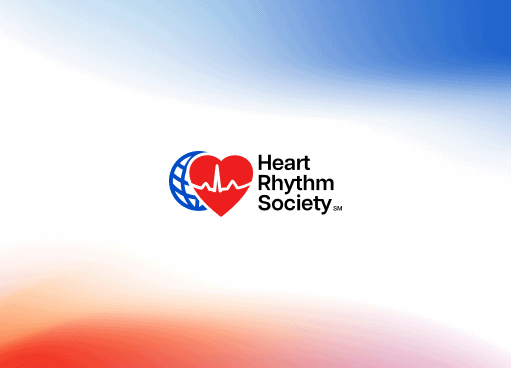First-ever economic analysis of CABANA trial reveals economic benefits of catheter ablation compared to drug therapy
BOSTON, MA – A new analysis of the Catheter Ablation vs. Antiarrhythmic Drug Therapy for Atrial Fibrillation (CABANA) trial examines cost-effectiveness of catheter ablation compared to drug therapy. CABANA is the largest trial comparing catheter ablation to drug therapy and this is first analysis on costs and cost effectiveness of ablation using patient-level data. Findings from the economic analysis were presented as a late-breaking clinical trial as part of Heart Rhythm 2021.
Atrial fibrillation (AF) impacts more than 60 million people worldwide 1and accounts for up to $26 billion in health care costs in the United States alone. In fact, annual medical costs for patients with AF are 73% higher than those without the condition.2 With the growing AF patient population and economic burden on patients, there is an increased need for cost-effective treatments. While the CABANA trial previously demonstrated improvements in quality of life, freedom from AF recurrence and decreased AF burden compared to drug therapy, cost outcome data has been limited to less robust trials.
An economic analysis was conducted using patient-level data collected prospectively during the CABANA trial. This included resource use data such as hospitalizations, procedures and emergency department visits reported from all 2,204 enrolled patients and hospital-based costs estimated from charges using department-level cost-to-charge ratios for 1,171 U.S. patients with billing data. Quality-of-life adjustment factors were based on utilities directly measured during the CABANA trial and cost-effectiveness was evaluated from a U.S. health care perspective over a lifetime horizon.
The findings highlight that, when adjusted for quality-of-life improvements, catheter ablation offers positive economic outcomes. The estimated incremental cost per quality-adjusted life year (QALY) gained with catheter ablation is $57,433 which is within conventionally accepted thresholds for value in the U.S. health care system. While costs with catheter ablation compared to drug therapy were significantly higher (attributed to the initial cost of ablation: mean $26,656 ± SD 9123) in the first three months of follow up, there were no significant differences in costs beyond 12 months. Patients assigned to ablation accrued an average of 12.6 life years (LYs) and 11.0 QALYs for a total cumulative cost of $150,987 (95% CI 145,420 – 169,208). Whereas, patients assigned to drug therapy accrued an average of 12.5 LYs and 10.7 QALYs for a total cumulative cost of $135,594 (95% CI 129,918 – 155,884).
“As clinicians, we’ve seen firsthand the benefits of catheter ablation for controlling irregular heartbeats – and now we also have economic evidence to support this treatment option as a viable option for our patients,” said Derek Chew, MD, MSci, and Daniel Mark, MD MPH, Duke Clinical Research Institute, the lead authors of the CABANA trial economic analysis. “Further, in an era of rising health care costs, it is increasingly important to deliver value-based care for progressive conditions such as AF.
The authors note that additional analyses of CABANA will be conducted to further determine cost- effectiveness for patients with heart failure and other key sub-groups.
The CABANA Trial Economic Analysis was partially supported by grants from the National, Heart, Lung, and Blood Institute.
Sessions Details:
“Late-Breaking Clinical Trials 3: Economic Outcomes Of Ablation Versus Drug Therapy In CABANA” [Friday, July 30, 2021 at 11:00 a.m. EST]
1 Roth GA, Mensah GA, Johnson CO et al. Global Burden of Cardiovascular Diseases and Risk Factors, 1990-2019: Update From the GBD 2019 Study. J Am Coll Cardiol 2020;76:2982-3021.
2 Kim, Michael H., et al. “Estimation of Total Incremental Health Care Costs in Patients With Atrial Fibrillation in the United States.” Circulation: Cardiovascular Quality and Outcomes, vol. 4, no. 3, 2011, pp. 313–320., doi:10.1161/circoutcomes.110.958165.
###
>About Heart Rhythm 2021
The Heart Rhythm Society’s annual meeting attracts thousands of the world’s finest clinicians, scientists, researchers, and innovators in the field of cardiac pacing and electrophysiology. Heart Rhythm 2021 attendees were able to determine how to participate – virtually or in-person. More than 600 international experts in the field will serve as faculty for programing that includes Daily Plenary Sessions, Late-Breaking Clinical Trials, Recorded Cases, Debates, Rhythm Theater Presentations and more, while over 100 exhibitors will showcase innovative products and services.
About the Heart Rhythm Society
The Heart Rhythm Society is the international leader in science, education, and advocacy for cardiac arrhythmia professionals and patients and is the primary information resource on heart rhythm disorders. Its mission is to improve the care of patients by promoting research, education, and optimal health care policies and standards. Incorporated in 1979 and based in Washington, D.C., it has a membership of more than 7,000 heart rhythm professionals in more than 70 countries around the world. For more information, visit HRSonline.org.
Related Posts

Press Releases
The Heart Rhythm Society Announces Framework for Establishing Atrial Fibrillation Centers of Excellence and Key Operational Standards
April 23, 2025

Press Releases
Heart Rhythm 2025: Largest EP Event in the World Convenes for 46th Year
April 21, 2025

Press Releases
Help Save Lives: Heart Rhythm Society Provides AED and CPR Training to San Diego Hotel and Convention Center Staff
April 16, 2025